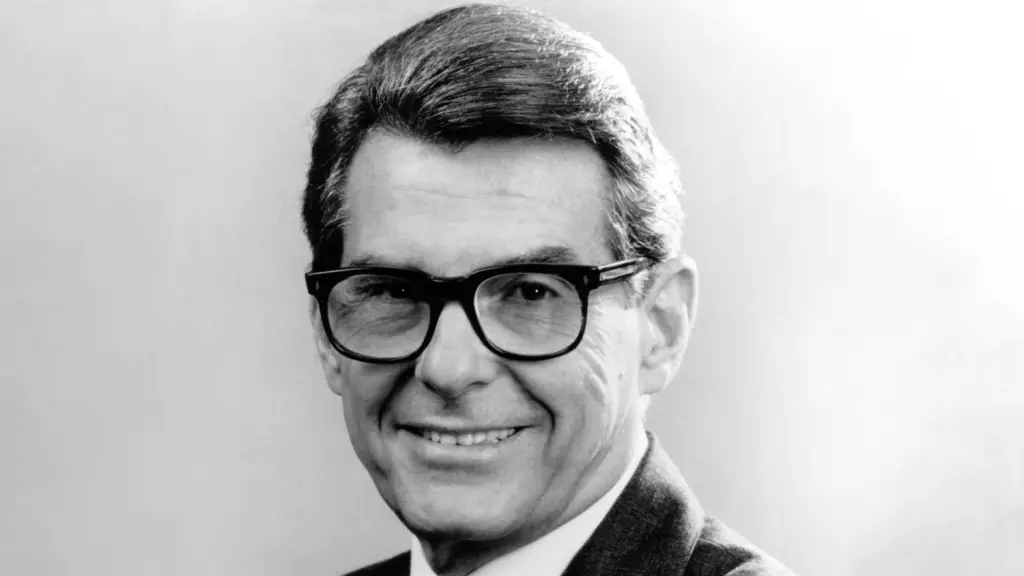The entertainment industry mourns the passing of Richard Kahn, a stalwart figure in film publicity and a significant contributor to the legacy of the Academy of Motion Picture Arts and Sciences. He passed away on April 5 in Los Angeles at the age of 95, leaving behind a wealth of memories and milestones that have undoubtedly shaped the film community. His departure marks not just the loss of a venerable leader, but also the fading of an era characterized by passion and dedication to the craft of cinema. In a heartfelt statement from the Academy’s CEO Bill Kramer and President Janet Yang, it was noted that his impact on the Academy was profound, remarking on his enduring commitment to both the institution and the larger film community.
Kahn’s ascension to the presidency of the Academy in August 1988 wasn’t merely a routine governance transition; it represented a culmination of nearly three decades of service in various capacities, underscoring his dedication and aptitude for leadership. Elected as the 26th president, he succeeded the renowned Robert Wise and retained a pivotal role for a full term, further strengthening the foundation of an institution revered around the globe. His 12 years as a governor and numerous terms in key advisory roles such as Vice President and Secretary reflect a legacy of engagement and influence that resonated throughout his lengthy career.
Forging New Traditions
Kahn was not just a figurehead but a key architect of several cherished Academy traditions that continue to thrive today. His innovative initiatives included the introduction of member receptions, bridging the gap between seasoned professionals and newcomers, and enhancing the sense of community within the Academy. These receptions have now become a global symbol of inclusion, providing opportunities for networking and collaboration amongst filmmakers and industry professionals worldwide.
His leadership also spearheaded the establishment of the Academy’s first Nominees Luncheon in 1982 through the Public Relations Coordinating Committee. This event has since evolved into an annual celebration that honors the achievements of nominees, fostering a spirit of camaraderie among the industry’s finest. By focusing on both the present and future of the cinematic arts, Kahn ensured that the Academy remained dynamic and forward-thinking, agility that is crucial in an ever-evolving industry landscape.
A Multifaceted Career in the Cinematic Landscape
The breadth of Kahn’s career spanned six decades, marking him as a veteran whose influence extended far beyond his immediate responsibilities. His tenure at Columbia Pictures, which began after completing his degree at the University of Pennsylvania’s Wharton School and serving as a U.S. Navy officer during the Korean War, was foundational. His marketing efforts on classic films—including “The Bridge on the River Kwai” and “Lawrence of Arabia”—not only showcased his skill but also indicated his keen understanding of how to connect films with audiences.
Later, his rise within Metro-Goldwyn-Mayer (MGM) to president of MGM International allowed him to make an even larger impact, especially in the wake of the 1981 merger with United Artists, demonstrating his ability to navigate complex corporate landscapes while maintaining a focus on the art of filmmaking. The following decade saw Kahn venture into consultancy with his wife, Marianne, as well as contribute academically as an adjunct professor at USC’s Peter Stark Producing Program, sharing his wealth of knowledge with the next generation of filmmakers.
A Legacy of Kindness and Humor
Kahn’s personal life echoes the warmth and positivity he brought to his professional endeavors. His daughters, Sharon Kahn and Lisa Kahn Feldstern, poignantly described him as having a “kind and generous soul,” reinforcing the notion that Kahn was equally an extraordinary father and husband outside of his impressive career. His family reflects the values he instilled in them, emphasizing the importance of humor and compassion—qualities that resonate deeply in an industry often overshadowed by competition and ego.
The accolades that adorned Kahn’s career, such as the Key Art Pioneer Award, serve only as a testament to his outstanding contributions. Yet, it is the indelible impact he made through his unwavering support for the arts, his pioneering initiatives, and his ability to connect with people that will forever hold significance. Richard Kahn’s legacy shines brightly, a beacon for future generations discovering their path in the world of cinema.


Leave a Reply